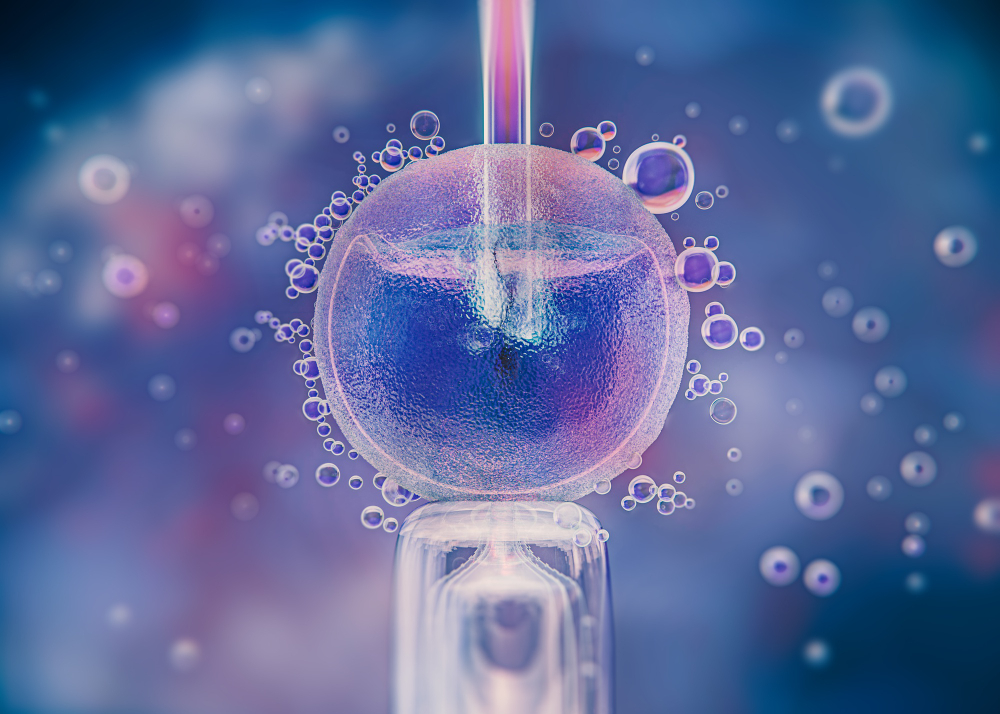ICSI (Intracytoplasmic Sperm Injection)

Intracytoplasmic Sperm Injection (ICSI) is a specialized form of in vitro fertilization (IVF) used to treat severe male infertility or cases where conventional IVF has failed to achieve fertilization. In ICSI, a single sperm is directly injected into an egg to facilitate fertilization, bypassing the natural barriers that may prevent sperm from fertilizing the egg.
Procedure:
Ovarian Stimulation: The woman undergoes ovarian stimulation with fertility medications to produce multiple eggs.
Egg Retrieval: Mature eggs are retrieved from the woman’s ovaries through a minor surgical procedure called transvaginal ultrasound-guided follicle aspiration.
Sperm Collection: Sperm is collected from the male partner or a sperm donor. If the male partner has a low sperm count, poor sperm motility, or abnormal sperm morphology, sperm can be retrieved directly from the testicles through procedures like testicular sperm extraction (TESE) or percutaneous epididymal sperm aspiration (PESA).
ICSI Procedure:
- A single sperm is selected and immobilized using a specialized microscope and micromanipulation tools.
- Using a fine glass needle, the selected sperm is then injected directly into the cytoplasm of the retrieved egg.
Embryo Culture: Fertilized eggs (embryos) are cultured in the laboratory for several days to allow for development.
Embryo Transfer: Developed embryos are transferred into the woman’s uterus through a thin catheter, usually 3-5 days after egg retrieval, similar to traditional IVF.
Benefits and Considerations:
- High Success Rates: ICSI can achieve fertilization rates even in cases of severe male infertility.
- Increased Control: Provides precise control over the fertilization process by directly injecting sperm into the egg.
- Genetic Testing: Allows for genetic testing of embryos prior to transfer, reducing the risk of passing genetic disorders to offspring.
- Additional Costs and Risks: ICSI is generally more expensive than conventional IVF and carries a slightly higher risk of certain complications, such as chromosomal abnormalities in offspring.
ICSI has revolutionized the treatment of male infertility, offering hope to couples who may not have been able to conceive using traditional IVF methods. It is an invaluable tool in assisted reproduction, providing an effective solution for couples facing severe male factor infertility.
